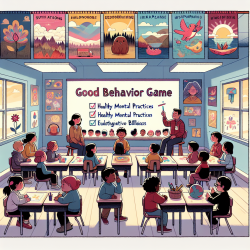When it comes to special education, understanding the concept of alternate placement is crucial for both parents and educators. This blog will help demystify what alternate placement means and why it might be the best option for some students.
What is an Alternate Placement?
Alternate placement refers to a classroom setting that may not align directly with a student's primary disability category. This decision is made by an Individualized Education Program (IEP) team based on assessments and the student's IEP goals. The aim is to place students in the least restrictive environment (LRE) while addressing all their educational needs.
Key Elements of Alternate Placement
- IEP Authorization: A special education teacher must hold the appropriate authorization to provide the necessary services identified in the student's IEP.
- Federal Requirements: Federal Statutes mandate that students with exceptional needs be placed in educational programs with the least restrictive environment.
- Assessment-Based Decisions: The IEP team determines the need for alternate placement based on comprehensive assessments and the student's goals.
Who Might Need an Alternate Placement?
Students with low incidence disability categories—such as hearing impairments, vision impairments, and severe orthopedic impairments—may require an alternate placement if they also have a secondary disability. In such cases, the IEP team may decide that addressing the secondary disability in a different setting is more appropriate.
Legal Framework and Compliance
According to Sec. 300.115 of the Individuals with Disabilities Education Act (IDEA), schools must provide a continuum of alternative placements. This ensures that each student's unique needs are met in the most suitable educational environment. In California, the CalSAAS system helps identify and determine the appropriateness of alternate placements.
504 Plan vs. IEP
If a student is designated with a primary disability and has an IEP but only requires related services (like physical therapy), a 504 plan might be more appropriate. This is because a 504 plan can provide accommodations without the need for specialized instruction.
Conclusion
Understanding alternate placements can help parents and educators make informed decisions that best support the educational needs of students with disabilities. For more information, please follow this link.










